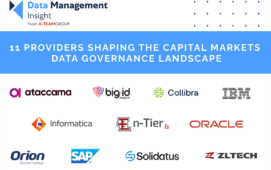The reporting deadline for European Market Infrastructure Regulation (EMIR) has been set for February 12, 2014, following the European Securities and Markets Authority’s (ESMA) approval of four trade repositories for derivatives trading. A request by ESMA to delay the reporting deadline for exchange-traded derivatives by a year has been turned down by the European Commission.
The initial trade repositories that will be registered by ESMA on December 14, 2013, are: DTCC Derivatives Repository, based in the UK; UnaVista, owned by the London Stock Exchange and based in the UK; Krajowy Depozyt Papierów Warto?ciowych, based in Poland; and Regis-TR, which is owned by Deutsche Börse Group’s Clearstream and Spain’s Iberclear and is based in Luxembourg.
ESMA is processing more trade repository applications, among them requests for approval from US derivatives exchanges CME Group and IntercontinentalExchange (ICE).
At this week’s FIMA conference, keynote speaker Tom Springbett, head of the Financial Conduct Authority’s (FCA) OTC derivatives and post-trade policy, explained reporting for EMIR. He described the emergence of EMIR following the 2008 financial crisis, when regulators recognised significant stress in the derivatives market, but had only limited knowledge of exactly what was happening, and the 2009 G20 mandate to report OTC trades, which led to the drafting of EMIR.
Counterparties and central counterparty clearing houses must report under the regulation, although Springbett noted that reporting can be delegated with compliance remaining the responsibility of the delegating entity. All derivatives contracts, including both OTC and exchange-traded derivatives, must be reported – this differs to the US where Dodd-Frank requires only OTC derivatives to be reported – and lifecycle events, such as give-ups and terminations, must also be reported.
The deadline for reporting is no later than the working day following the trade, with reports being made to EU and ex-EU trade repositories approved by ESMA. With approvals for four European repositories in place, reporting comes into play in February 2014, with valuations and collateral reporting scheduled to start six months after the first reporting deadline.
EMIR reporting includes more than 80 fields, with data divided into two tables, one containing information about the trading entity and the other providing common information, such as contract details, that must be reported by both sides of the deal. Springbett said the legal entity identifier (LEI) is expected to be used in EMIR reporting and noted product identification and trade identifiers as issues that remain to be finalised before mandatory reporting begins.
He suggested the primary user of data collected under EMIR will be the Bank of England, which has a responsibility to monitor systemic risk, with the FCA using the data within its remit of monitoring market conduct. Penalties for non-compliance, he concluded, would be proportionate to the non-compliance.
Subscribe to our newsletter




